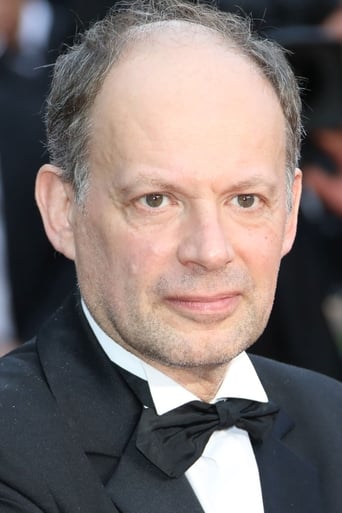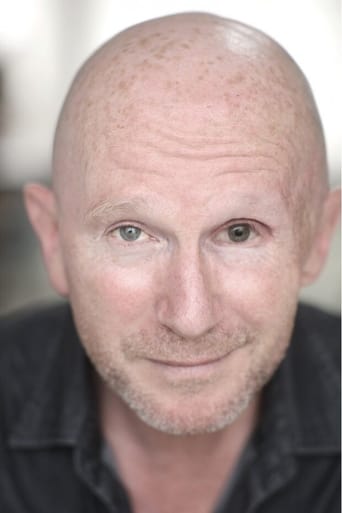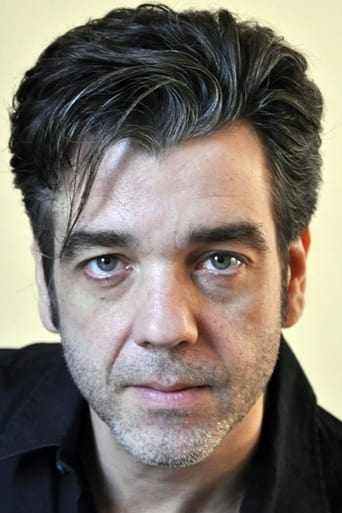CrisPat
The moment the teacher kidnaps her students and then gets into a hotchpotch of moral dilemmas which make her character ambivalent - obviously she had good intentions but goes the wrong way to achieve them, you would expect her to die in the end. It is disappointing to see that you are not disappointed - yes she dies.The whole film starts from a very strong and challenging premise - the difficult assimilation of the Muslim immigrants into the French society - and just builds towards the inexorable death of the heroine. It didn't grip me though, and I found the pace slow. In its quest for social exploration, it lost the elements of the thriller. And as a social drama, it had too much thriller recipe to allow for the proper exploration of any of the characters.It also doesn't have a credible thread. In a high school where students shout at and threaten the teacher, carry revolvers and film the rape of their colleague, you would expect the soft looking, elegantly dressed woman to give up her high ideals at the first bullying or beating. She is not congruent with anything around her. Mouss, the other pupils, the minister representative - they are all half-baked characters, you only wonder why do they do what they actually do. The good-cop policeman is probably the worst construed - we understand vaguely he's got some family troubles in the background, but we can't really understand what drives him. With his superior not objecting to what is presumably a clear violation of procedure, he goes in for a heart-to-heart talk with the armed terrorist, he keeps protecting the teacher despite pressure from everyone around him etc. His motives get too little air time to be credible.Yes, Adjani acts very solidly, the rest of the cast is on and off. But for a film to be enjoyable, it takes a lot more than that.
R. Ignacio Litardo
A mix of "Entre les Murs" ("The Class"), Michael Douglas' "Falling down" and maybe "Negotiator" (2008), this gripping even if unlikely film stars Isabelle Adjani, showing she's a great actress, and Denis Podalydès as "Brigadier Labouret" , who doesn't have to show anything, as a cop with problems at home. Everybody has an antagonist in life, his Salieri. In this case, our brigadier has Bechet, who wants swift action, "shoot first, think later", style. Labouret, maybe because he knows from experience how things can quickly get out of control, tries to help our beautiful heroine, Sonia Bergerac, a literature teacher in an underprivileged state high school. Isabelle Adjani being born outside France, it's clear why she chose to star this film, and some of her monologues when she's not out of control are of course her "message", like when she tries to educate her unruly pupils about the value of education, how they owe it to their struggling immigrant parents to achieve something for all they've left behind, and how life isn't that tough for students like them, but it's ruthless for those (foreigners) who don't.The State is represented by Nathalie Besançon, (also playing a classy chief at TV series "Enquêtes réservées") always beautiful, but easily misled, and the school principal "Cauvin", a bureaucrat, like all of his kind, trying to save his skin above everything else.This film will keep you glued to your seat, it would be a disaster on a lesser actress than Adjani. Unpredictable, out of control, "like an actor who has lost his plot" as others have written. My gripes are two: I would have liked a bit more of screen time to "Mouss", the violent bully, and his pal. What makes them be as they are? The same for the female pupils, or should I say victims, Farida and specially Nawel, Nathalie's unlikely ally, also with issues of her own. I also didn't believe in the feminist issues, like the film's title for instance, or Sonia's lecturing on how males and females differ in terms of attitudes towards them when they have sex. For a sophisticated Moliere teacher, I think this sounds too like pop psychology. I mean, is that her "reivindication" for the media, what Labouret asks her, doggedly, and mistakenly of course? This is also a film that will keep you thinking. What would you do to engage this troubled, rowdy teens if you had to teach them anything? How do you think they'll fare in life? Farid wanting to keep his bonnett is just an example of a bigger issue. Is laicisim just a fancy word with a bunch of violent kids who want to be footballers, read People magazine and participate in TV shows? Sonia, no cultural relativist, (notice her surname, with heavy literary significance) pokes fun at her pupils's lack of intellectual ambitions, in a very "grand actor's" way. She starts by trying to give them the class she never could deliver. Like making them memorize the real and fake name of Moliere, etc. But later, she finally makes them participate in a sort of "Big brother" contest, among themselves, just showing she's beginning to engage the pupils using their codes and language, understanding the limits of XIX century "classical" education, specially to XXI century "fragmented" / postmodern pupils!The use of classical music (Mozart) to highlight the contrast between it, the "traditional culture" and the "all to modern" world in which our teacher fights is a resource that has been used before, but is effective, nevertheless. There are two IMDb reviews you might like to check: "ck_104 from Lebanon" called this film a "committed/ social thriller", I think you can't expect a better one. And "herve naudet", himself a pupil like the ones we see at this tough film, who writes that Adjani lives her parts, and plays with her guts. I agree with "nyc host" from France that: "this film is more to-the-point than the very flat and bland take of the last Palmes d'Or 'Entre les Murs' ". And probably with ghibliii from United Kingdom here: (Adjani) "looks way too luxurious and sophisticated for the social milieu"Nevertheless, it's a very good film by actor and director Jean-Paul Lilienfeld. I'm looking forward to watching more films directed by him. My favourite scene is of course her monologue with red lighting, in the beginning of the film and then later, you'll understand why. Enjoy and think about it!PS: Not because it's obvious it's less true: Adjani is stunning in her classy white tailleur and boots with high heels. Angel's face, really. Life's unfair :).
thisissubtitledmovies
excerpt, more at my location - Jean-Paul Lilienfeld has certainly ensured his new film Skirt Day will be talked about. Not only is it set in the hotbed of social issues that is Paris' outer regions, it also sees the return after a five year big-screen hiatus of Isabelle Adjani, one of the most celebrated actresses in the history of French cinema. Lilienfeld's film takes place in a lower class high school, and deals with some of the biggest issues of the day such as race, class and the French education system.Full of emotion, hostility and dark humour, Skirt Day provides heart- pounding drama and astute social commentary in equal doses. All of this is capped off with a scintillating performance from Isabelle Adjani, who really does teach a lesson to any aspiring actresses.





